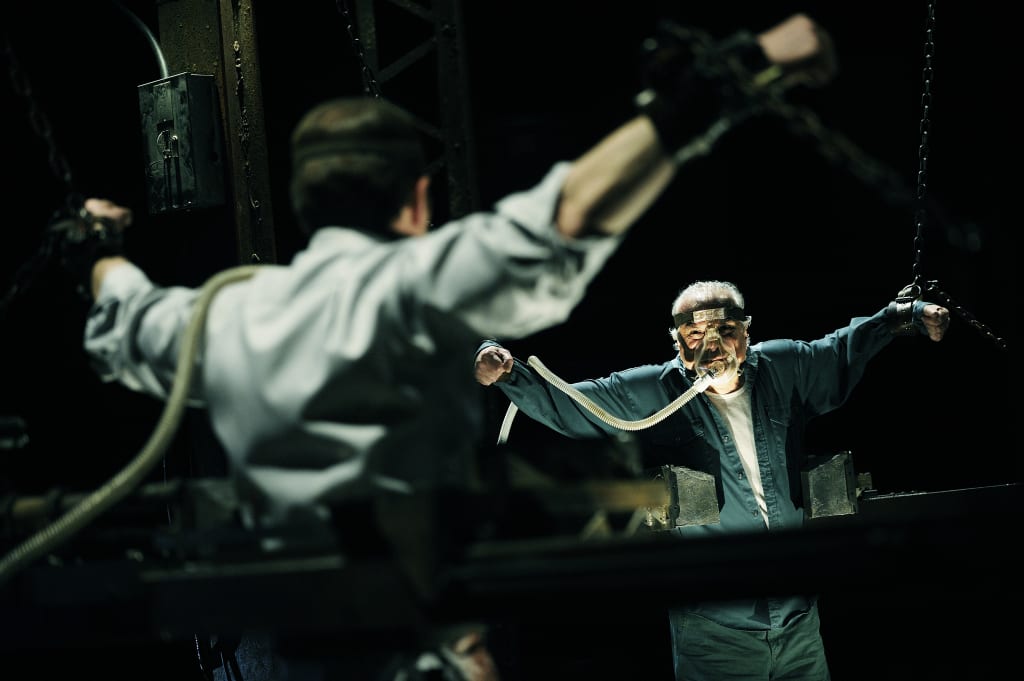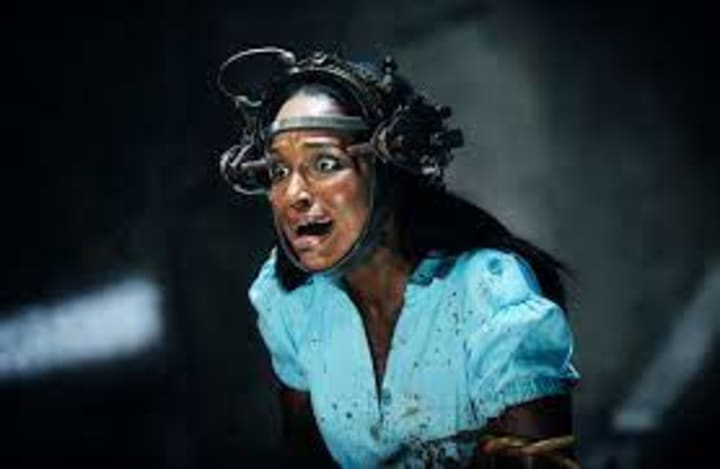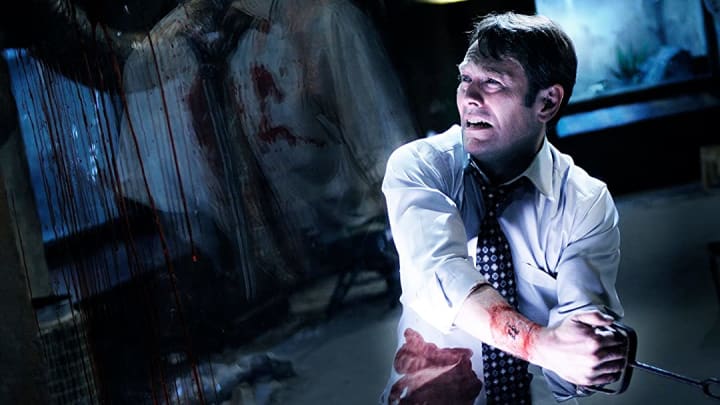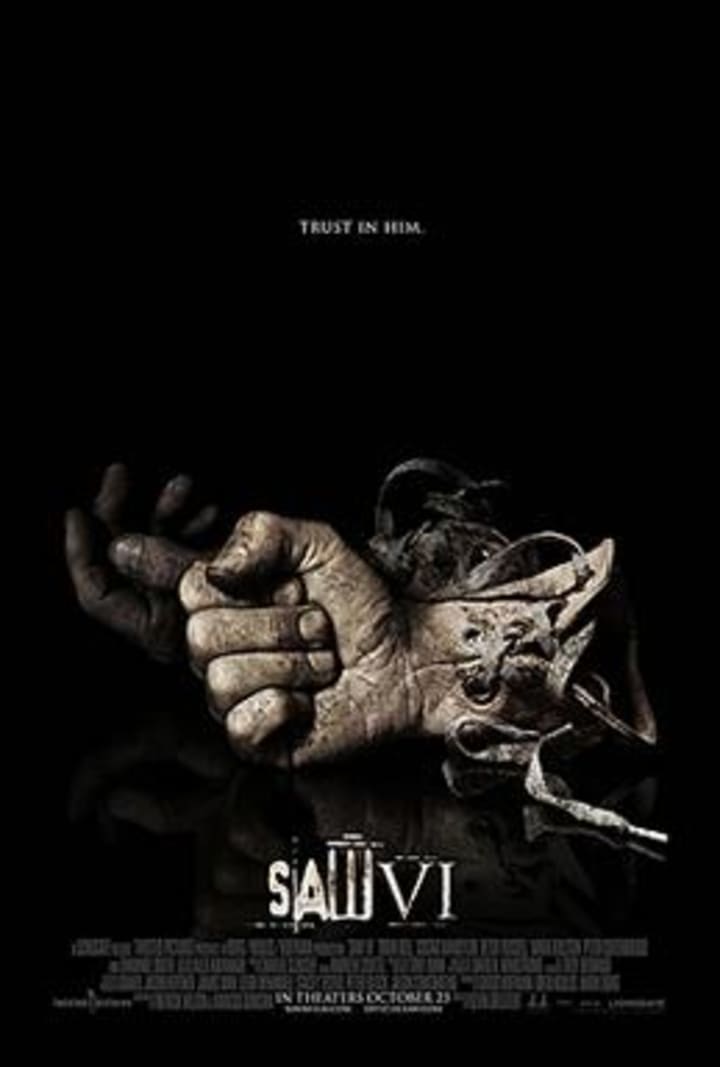Classic Movie Review Saw 6
The 6th film in the Saw franchise makes good on the series promise of exploring American morality and politics.

Since the series debuted in 2004 I have been trying to convince people of the insidious brilliance of the Saw movies. Not merely another torture porn horror series, the Saw movies have a theory behind them. The lead character Jigsaw, aka John Kramer, played by Tobin Bell, believes that he can teach those who have taken their lives for granted to appreciate the gift of life. Jigsaw’s 'tests' are designed not merely to put these people in life and death situations but to reveal their true selves, their inherent nature, morality and character. Each is given a chance to reveal who they are through the choices they make and in doing so save their life or doom them.
The latest in the series, Saw 6, took this theory of death, this dark experiment, and teamed it with a ripped from the headlines plot that, at the time, gave the series a new juice. Jigsaw is long dead by Saw 6 but his game continues with the help of his minion, Detective Hoffman (Costas Mandylor). Why Detective Hoffman turned from good guy cop to willing accomplice of Jigsaw is woven through the past four “Saw” movies. In this game, Detective Hoffman captures an insurance guy named William (Peter Outerbridge). William's job for years has been finding ways to keep his company from paying claims. With his team that he calls 'the dog pit' William figures he can find some way to deny just about any claim.

What he has failed to understand, or care about, is the fact that his decisions, delivered in phone calls and form letters, are really death sentences. Jigsaw aimed to show William how a life and death decision is really made in a series of disturbing and horrifying challenges. Meanwhile, Detective Hoffman has a surprise in store as the FBI closes in and a face from the past he thought was gone reemerges. Then there is Jigsaw's wife Jill (Betsy Russell) who is looming in the background with her own set of Jigsaw instructions that are guaranteed to pay off at some point.
Director Kevin Greutert moved from the editing bay, where he cut each of the first 5 Saw films to the director's chair for Saw 6 and the move is as seamless as a good edit. His insider knowledge of the other Saw franchise films allowed him to fold the plot back and weave it into the history that devotees of the franchise, such as myself, are so enamored with. Greutert has bounced between the editing bay and the director’s chair on every Saw movie, with the exception of the most recent Saw sequel movie, Spiral: From the Book of Saw. The production of that conflicted with another of Greutert’s projects or he might have returned for Spiral as well.

Saw 6 writers Marcus Dunstan and Patrick Melton are also long-time Saw associates. The duo took over screenwriting on the franchise after Leigh Whannell left the franchise and they helped to keep the story symmetry in place while crafting new terrifying situations and contraptions that build on the darkly ingenious machines and plots of the past films. Credit the director and screenwriters for giving this series new life by ripping from the headlines a timely plot that vilifies both bankers and insurance companies in ways even Michael Moore couldn’t imagine.
Movie series aren't supposed to be this good when they get this far. In fact, most series are long out to pasture by the sixth movie. Through devilish ingenuity and malevolent imagination, the team behind Saw kept finding new and unique ways to keep Jigsaw's work fresh and intriguing. A horror film with a human center amidst its dark, twisted soul, Saw 6 didn’t merely keep the corpse of Jigsaw warm for more profit. Rather, Greutert, Dunstan and Melton took the opportunity of Saw 6 to expand on Jigsaw’s approach to life and death philosophy to tell a timely and necessary story.

Hollywood rarely makes good on its reputation for liberal politics. What a shock that it would take a horror movie to be the first to truly dramatically tackle the crisis of our American system of medical insurance, an industry whose wheels are greased by both the green of money and the red of the blood of poor people unable to afford to play the deadly game of American capitalism which makes no exception for those lacking the means to control the system.
About the Creator
Sean Patrick
Hello, my name is Sean Patrick He/Him, and I am a film critic and podcast host for the I Hate Critics Movie Review Podcast I am a voting member of the Critics Choice Association, the group behind the annual Critics Choice Awards.






Comments
There are no comments for this story
Be the first to respond and start the conversation.